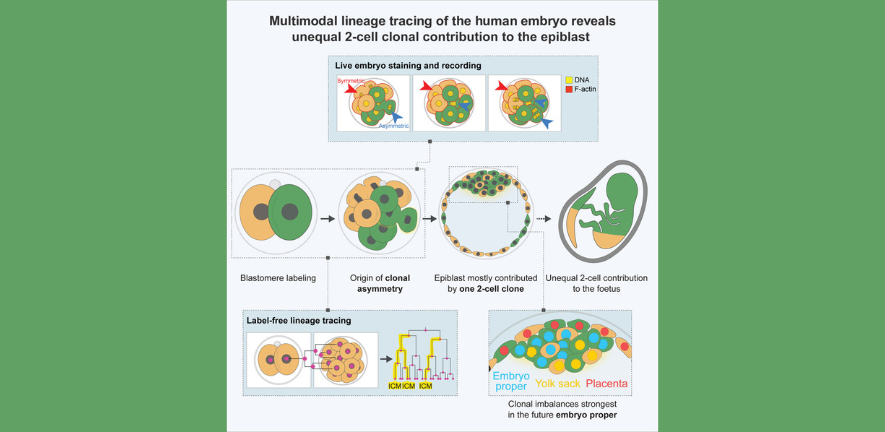
Submitted by Emily Rigby on Wed, 15/05/2024 - 16:25
A new paper The first two blastomeres contribute unequally to the human embryo, published in Cell, and whose authors include members of the Zernicka-Goetz Lab, finds that when a human embryo is one day old and comprises just two cells, only one cell will create most of the fetus in addition to placenta, while the other cell will create placenta.
This challenges the previous idea that each cell at the 2-cell stage contributes equally to all parts of the developing embryo and placenta, and suggests that embryo symmetry breaks much earlier than previously believed. The team also propose that cell division dynamics and a cell internalization bottleneck in the early embryo establish asymmetry in the clonal composition of the future human body.
It is hoped that these findings will improve the success rates of IVF pregnancies through a deeper understanding of early embryo development, and increase knowledge of the origins and developmental contributions of cell lineages, which has implications for the cellular inheritance of mutations and how they might contribute to cancer and other genetically determined disease.
Read the paper in full The first two blastomeres contribute unequally to the human embryo: Cell

